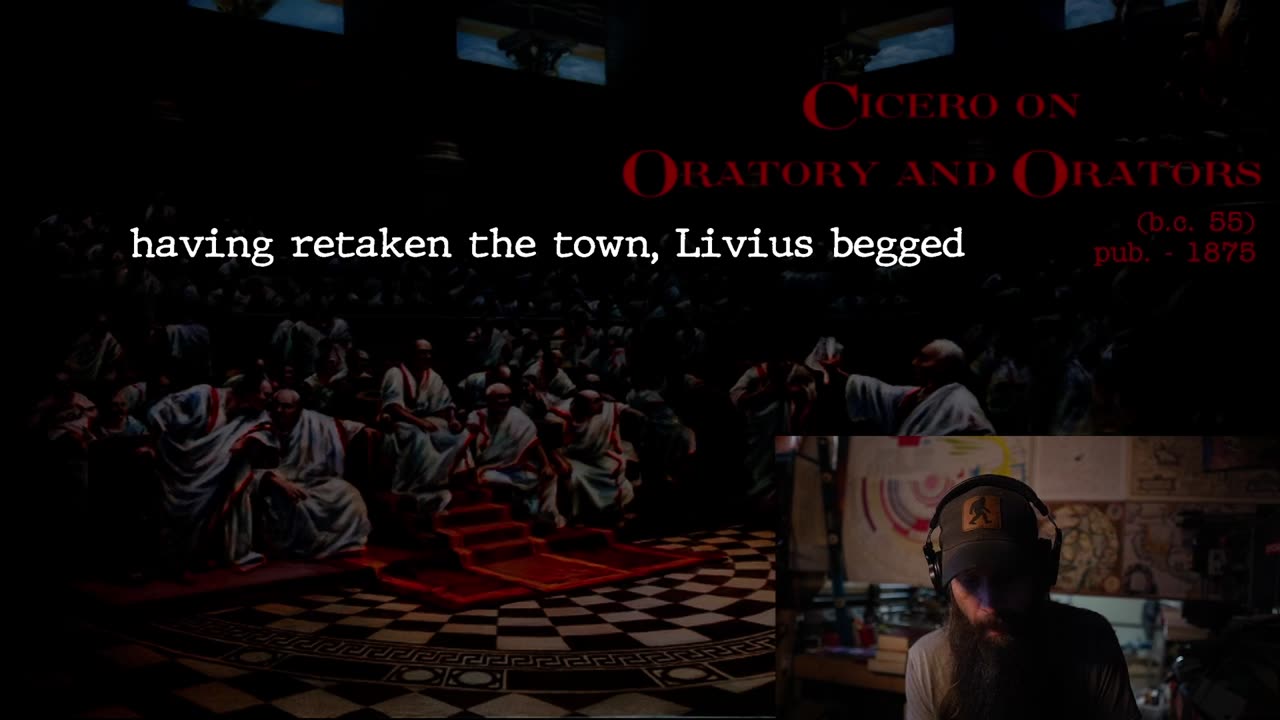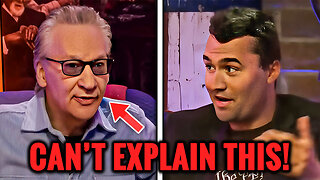Premium Only Content

Cicero on Oratory - B2 - LXVII LXVIII
Cicero on Oratory - B2 - LXVII LXVIII
In this video, Cicero discusses the role of humor and irony in effective oratory. He emphasizes the importance of wit in discourse, highlighting its applicability beyond legal contexts. Cicero provides examples from different personalities in Roman history to illustrate the various forms of humor, including irony and dissimilation, as tools for engaging an audience and enhancing speeches.
Key Points:
Ironical Dissimilation
Cicero elaborates on ironical dissimilation as an essential element in oratory, where speakers express thoughts differing from their words. This technique can effectively engage audiences and enhance the speaker's argument.
Humor in Discourse
Cicero argues that humor, particularly witty banter and irony, is suitable for various forms of discourse, not limited to legal speech, stressing that it can elevate the quality of communication in any setting.
Examples of Wit
Throughout his discussion, Cicero provides historical examples of wit, such as the clever retorts of Casius and Fabius Maximus, demonstrating how humor has been effectively employed by notable figures to convey messages powerfully.
Importance of Timing
Cicero notes that the use of humor is dependent on timing and context, asserting that even absurd or trivial jest can have a place in serious discussions, providing laughter and engagement for the audience.
Sarcasm and Absurdity
Cicero highlights the nuances of sarcasm and absurdity in rhetoric, explaining that oftentimes, seemingly foolish comments can provoke thought and delight, blending humor with serious commentary.
-
 8:19
8:19
MattMorseTV
15 hours ago $10.48 earnedTrump is ACTUALLY DOING IT.
52.7K45 -
 5:40
5:40
Sugar Spun Run
23 hours ago $0.80 earnedNutella Brownies
4.1K -
 8:46
8:46
Faith Frontline
15 hours agoBill Maher STUNNED as Charlie Kirk Proves God Exists
3.76K7 -
 LIVE
LIVE
FyrBorne
9 hours ago🔴Warzone M&K Sniping: On the Hunt For The Next Fun Builds
35 watching -
 7:11
7:11
MudandMunitions
11 hours agoNY Legal, Still LETHAL! Colt M4 + Griffin Armament GPS3X Prism Sight! NIGHT SHOOT
2.55K3 -
 2:11
2:11
WildCreatures
2 days ago $0.47 earnedBrilliant Blue Hyacinth Macaw Eats Nuts With Impressive Dexterity
4.52K5 -
 29:45
29:45
DeVory Darkins
14 hours ago $5.04 earnedDemocrat Governor suffers EMBARRASSING LOSS to Trump as ICE takes Garcia into custody
8.99K58 -
 24:50
24:50
Bitcoin.com
15 hours agoEthereum hit an ATH this weekend | The Weekly Recap for Aug 25
8.44K -
 56:27
56:27
Actual Justice Warrior
15 hours agoAnti-White Celebrity DESTROYED On Jubilee
10.5K11 -
 19:44
19:44
itsSeanDaniel
1 day agoLiberal Karen INSTANTLY REGRETS Interrupting Putin's Right Hand Man
5.63K11